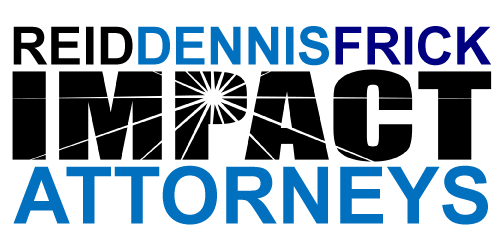- An initial office consultation is the first and most important step toward the formation of an attorney-client relationship.
- It gives you the opportunity to interact with the professional who will be taking care of your legal problem and to explain your issues and concerns in a personal, confidential setting.
- Our attorneys provide an initial office consultation that typically lasts 90 minutes.
- The cost for your initial consultation will be $500.
This is not a perfunctory, free 30-minute sales pitch. Instead, we will delve into the particular facts of your situation, the individuals and business organizations involved who may be parties to your dispute or lawsuit, and the potential problems that may arise, or have already arisen. We want to ensure that we are a good “fit” for your legal problem.
Choosing the Right Attorney for You
Attorneys aren’t fungible. Martindale-Hubbell, the prestigious information services company for the legal profession, lists more than 350 individual areas of practice—from large areas like “real estate” and “wills & probate” to specific areas like “venture capital” and even “Uber accidents.” The Texas Board of Legal Specialization certifies attorneys in 24 different specialty areas, including civil trial law and family law. Every case and every transaction is, in many ways, unique. Often, you may need an attorney competent in multiple practice areas.
During your initial office consultation, you should discuss with the attorney the specific facts of your particular situation. We want to hear your problems and concerns so we can determine if we are the right choice for you. We want you to be comfortable working with us, and we want to be comfortable working with you to solve those problems and address your concerns. Sometimes, we will not be able to help you. Other times, we may refer you to one of our professional colleagues at another law firm who we think may be a better fit for you personally or for your particular matter. Likewise, you may decide that we are not the right choice for you.
Conflicts Checks
Attorneys have relatively strict ethical requirements that limit what matters they can work on. Because of the confidential nature of attorney-client communications, attorneys often cannot accept matters that involve current clients, past clients, or close acquaintances of the attorney or other attorneys at the same law firm. To avoid violating these ethical rules, most attorneys perform a “conflicts check” before formally accepting any new client.
During your initial office consultation, your attorney will likely ask you about the other parties to your transaction or lawsuit. It is important that you provide accurate and complete information concerning such other parties for a “conflicts check.” Remember that even if the attorney you meet does not know any of the other parties, we must also check to determine if other attorneys at our firm currently represent or previously represented such parties.
Reviewing Documents
We are often asked to review documents from a potential new client before our initial office consultation. Without hearing your “story” first, it is difficult to ascertain which provisions of documents are important. An attorney may waste time focusing on language which has no bearing on your matter. Properly reviewing documents takes time and is part of the services attorneys typically charge for. Until the consultation has been completed, a “conflicts check” has occurred, and an attorney employment agreement or engagement letter has been signed, we cannot formally represent you in your legal matter. If we determine that we do not have the right mix of competence and experience to help you, or you decide that we are not the right choice for you, that time would be wasted.
Sometimes, it is necessary to perform a preliminary review of certain key documents to determine if a matter falls within our areas of practice or if a conflict with another client exists. Even in such a situation, NEVER send any documents to us as email attachments before your initial consultation. Due to cybersecurity concerns, we will not open any such attachments. Instead, you should bring those key documents with you to your consultation. We will scan them for our purposes, and return the originals to you. In the rare situation where we conduct an initial consultation by telephone or teleconference because you are located outside of the DFW area, you will need to mail, fax, or send such documents by delivery service to our firm in advance.
Retainers and Fee Agreements
If we determine that we can help you with your matter, and you decide that we are the right fit for you, we will discuss your budget for your legal matter. Transactions and lawsuits come in all sizes, from the purchase or lease of a small office building to complex construction litigation involving large projects with multiple parties. In most cases, our legal staff provides services for compensation based on the amount of time billed to your matter. Our attorneys typically charge $350-500 per hour, and our paraprofessionals charge $100-160 per hour. How much time will ultimately be required depends upon the nature and complexity of your legal matter and, often, how difficult or aggressive the other parties may be.
We often require clients to deposit a retainer, or advance fee, as a down payment for our services. Our fees and expenses are billed against this retainer, and you will be required to replenish your retainer monthly. A retainer is not an estimate of the total fees and expenses likely to be incurred in your matter. While we can help you determine an initial budget for your matter, that budget may need to be adjusted from time to time as new information is learned and new problems are encountered.
Flat Fees and Contingency Fees
Some services are available for a flat fee. For instance, the preparation of a simple will, power of attorney, mechanic’s lien, release of lien, etc. are typically done on a flat fee basis. We do not currently provide any litigation services on a flat fee basis. We do, however, provide appellate representation on a flat fee basis in some instances.
We may accept serious personal injury and wrongful death lawsuits against fully insured defendants on a contingency fee basis, commonly 1/3 or 40% of any recovery. We are often asked to accept other types of litigation cases on a contingency fee basis, particularly contract and collection cases. As a general rule, we decline to take such cases on a contingency fee unless we have represented a particular client for a long time and are familiar with its internal processes for screening the parties with which it does business.



